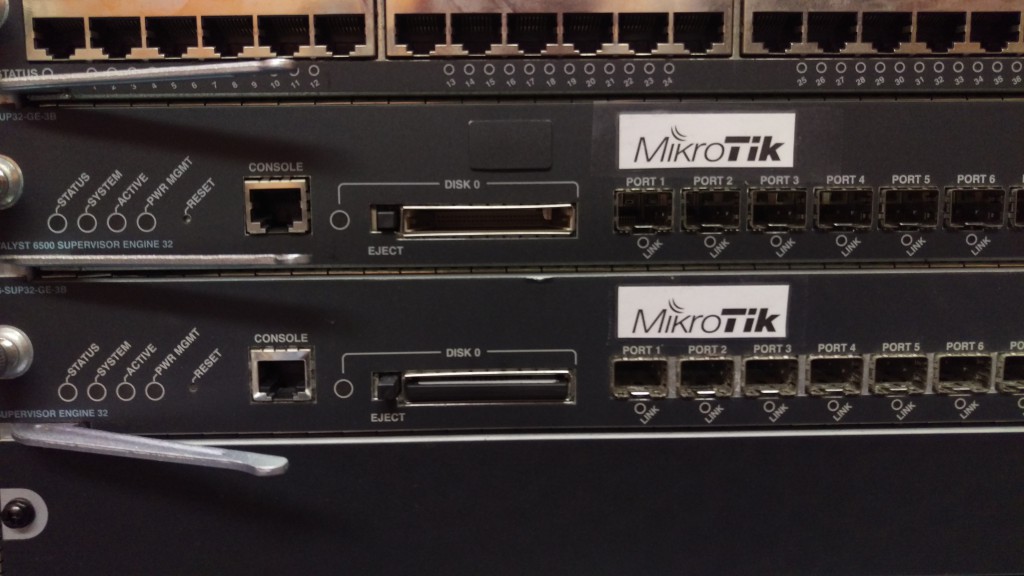tl;dr of LambdaConf drama
Short: SJWs dont like person's politics, try to shutdown small programming con due to person being speaker. (from @jcase).Longer: LambdaConf (a tiny conference for LISP-like programming languages) accepted a speaker with objectionable political views, who under a pseudonym spouted Nazi-like propaganda. "Social justice" activists complained. The conference refused to un-invite the speaker, since his talk content was purely technical, not political. Also, because free-speech. Activists then leaned on sponsors, many of whom withdrew their support of the conference. Free-speech activists took up a collection, and replaced the lost money, so that the conference could continue.
Much longer:
LambaConf is just a tiny conference put on by a small number of people. It exists because, in the last few years, there has been a resurgent interest in "functional languages".
The speaker in question is Curtis Yarvin. He has weird views, like wanting to establish a monarchy. Last year, he was censored from a similar conference "Strangeloop" for a similar reason: a technical, non-political talk censored because people couldn't tolerate his politics. The current talk seems to be similar to last one, about his "Urbit" project.
LambdaConf, in the spirit of diversity, stripped the authors names when Continue reading
CCIE – Cisco Learning Network Sale on CCIE Training for the CCIE RS Lab
Are you preparing for the CCIE RS lab? Cisco 360 is the official training program for the CCIE. There are other training vendors out there which are also high quality, like INE and Narbik, Cisco 360 has an advantage in that they can leverage the real platform of the lab though. If you want to assess how ready you are you can take an assessment lab at Cisco 360. You will also have the opportunity to get more comfortable with the lab platform that is used in the lab. You will also have the opportunity to practice the TS and DIAG section to make sure you are comfortable with those sections of the lab when the big day comes.
CLN will have a sale during April and May which means that you can save between 10-20% on these products to help you prepare for the CCIE RS lab. For the CCIE there are currently three products on sale.
The first product is a bundle and it’s a starter and advanced mini bundle for 1599$ and contains the following.
- Core and Advanced Workbooks with 25 Expert-level labs for hands-on practice. Labs 01–20 have troubleshooting and configuration sections each, labs 21–25 include Continue reading
GCP, and Regaining Trust
Google is telling us they’re serious about the cloud. They’re hiring the right people, spending the big bucks, and even (gasp!) talking to customers! (Oh how that must stick in their craw). They have great technology, they’ve proved it out at scale, and the price is right.
There’s just one nagging doubt in the back of our minds. Is Google serious about this? Are they going to turn around one day and say “GCP is too hard to maintain, we’re dropping it. Besides, self-driving Segways are the future.”
Fool me once…
Because they have form in this. I present Exhibit A, Google Reader. Yes, that old saw. Yes, yes I am still bitter. No, I won’t let it go.
I used Google Reader daily. I loved it. It came from a pre-Twitter, pre-Facebook time. A time when we used to have to visit a list of sites to keep up with things. We’d have to remember to check our friend’s travel blog every few weeks, just in case there was a new post. Sure, we used Slashdot as an aggregator, but everyone knows that’s been dead/dying since Rob Malda sold out to the man. (Has Netcraft has Continue reading
SDxCentral Weekly News Roundup — April,1 2016
 No fooling — our top headlines of the week, plus tidbits from ZTE, Fujitsu, and Calix.
No fooling — our top headlines of the week, plus tidbits from ZTE, Fujitsu, and Calix.
CoreOS & Intel Stuff OpenStack Into Containers
 VMs on containers on Kubernetes. It's easier that way, CoreOS says.
VMs on containers on Kubernetes. It's easier that way, CoreOS says.
Verizon to Add 16 Data Centers to Telco Cloud in 2016
 The carrier is learning as it goes.
The carrier is learning as it goes.
4 major IoT challenges that stand in the way of success
This vendor-written tech primer has been edited by Network World to eliminate product promotion, but readers should note it will likely favor the submitter’s approach.
Heralded for driving positive transformations in consumer products, retailing, healthcare, manufacturing and more, the Internet of Things (IoT) promises a “smart” everything, from refrigerators, to cars, to buildings, to oil fields. But there’s a dark side to IoT, and if we don’t overcome the challenges it presents, we will be heading for trouble.
The easiest way to see these challenges in action is to explore a possible IoT deployment. Let’s assume the following. A very large industrial food storage warehouse and distribution center is using Internet-connected devices to ensure the proper temperature of various zones, such as a massive refrigeration area for items requiring constant, non-freezing cooling and a massive freezer area for items requiring constant freezing.
To read this article in full or to leave a comment, please click here
Show 282: Why We’re Stuck With Middleboxes And How To Improve Them
Middleboxes--that is, non-routing and non-switching network devices such as firewalls and caches--can be expensive, hard to manage, and prone to failure. But they're also widely deployed, and show no signs of going away. Today's Weekly Show episode goes deep on middleboxes to explore why these devices have proliferated, and find ways to make them more reliable and easier to manage.
The post Show 282: Why We’re Stuck With Middleboxes And How To Improve Them appeared first on Packet Pushers.
Show 282: Why We’re Stuck With Middleboxes And How To Improve Them
Middleboxes--that is, non-routing and non-switching network devices such as firewalls and caches--can be expensive, hard to manage, and prone to failure. But they're also widely deployed, and show no signs of going away. Today's Weekly Show episode goes deep on middleboxes to explore why these devices have proliferated, and find ways to make them more reliable and easier to manage.
The post Show 282: Why We’re Stuck With Middleboxes And How To Improve Them appeared first on Packet Pushers.
Worth Reading: Don’t ask what you can measure

The post Worth Reading: Don’t ask what you can measure appeared first on 'net work.
The vagaries of FTP: What to look for in a secure large file transfer alternative
This vendor-written tech primer has been edited by Network World to eliminate product promotion, but readers should note it will likely favor the submitter’s approach.
FTP turns 45 this year. And, while this original protocol for transferring files over the Internet is still widely used, many companies are looking for a more modern alternative. Initially, concerns about FTP centered on security. But, as IP technology became ubiquitous for global data exchange, FTP’s more fundamental performance limitations also became apparent.
Because FTP was originally designed without security features like data integrity and confidentiality, the first security concerns arose around privacy of control channel data like user IDs and passwords, and then spread to the actual data being transferred. “Secure” FTP (FTPS) was developed in response. FTPS is FTP with Transport Layer Security (TLS), which protects file content and user names and passwords while in transit over the Internet from eavesdropping and modification.
To read this article in full or to leave a comment, please click here
Your Docker Agenda for April
Thank you Docker community for your amazing collaborations last month! In March, the community organized over 125 Docker Birthday #3 local trainings and celebrations. This month, you can still catch a few more birthday events and lots of other awesome … ContinuedThe Candy Jar Effect

When I first started in Cisco TAC, as a lowly grade 3 engineer taking hardware RMA calls, I didn’t know anyone. I had just moved to North Carolina, we hadn’t found a church yet, I’m not the most social person on the face of the earth (in fact, if anything, I’m antisocial), and I was sitting in a cubicle surrounded by people who’d been working in serious networking for a lot longer than I had. Not only that, but a lot of them were a lot smarter than I was (and still are). These people were really busy; it was hard to sip from the firehose, and I really needed to find my way around. How could I go about building a network?
What to do… ??
I put a candy jar on my desk, and filled it with interesting candy. How would a candy jar work? Well, it attracted all sorts of interesting people to my desk throughout the day, and as I got to know what different people liked, it gave me an excuse to bring stuff to their desk—along with a question about a case I was working on, of course. In a sense, I learned all I Continue reading
Photos leaked for new CCR-6506-96G-48S-16S+
So photos have been leaked (we can’t say from where exactly) for the newest experimental router from MikroTik. We don’t know much about it yet except it will be the largest router MikroTik has ever built and is currently designated as CCR-6506-96G-48S-16S+.
Rough specs are:
- 6 slot chassis
- Dual redundant 720 Gbps CPU modules
- Dual power
- 96 ports of copper 1 gig
- 48 1 gig SFP ports
- 16 Ten gig SFP+ ports
Apparently this device will coincide with the release of RouterOS version 8 in 2026 [an inside source at MikroTik named “Janis” confirmed this is a realistic target date.]
Many covert mAP-quadcopters died to bring us this information…these photos are NOT for public distribution.



And if you haven’t quite figured it out yet…APRIL FOOLS DAY!!!! But seriously MikroTik….we need this router. 
Photos leaked for new CCR-6506-96G-48S-16S+
So photos have been leaked (we can’t say from where exactly) for the newest experimental router from MikroTik. We don’t know much about it yet except it will be the largest router MikroTik has ever built and is currently designated as CCR-6506-96G-48S-16S+.
Rough specs are:
- 6 slot chassis
- Dual redundant 720 Gbps CPU modules
- Dual power
- 96 ports of copper 1 gig
- 48 1 gig SFP ports
- 16 Ten gig SFP+ ports
Apparently this device will coincide with the release of RouterOS version 8 in 2026 [an inside source at MikroTik named “Janis” confirmed this is a realistic target date.]
Many covert mAP-quadcopters died to bring us this information…these photos are NOT for public distribution.



And if you haven’t quite figured it out yet…APRIL FOOLS DAY!!!! But seriously MikroTik….we need this router. 
